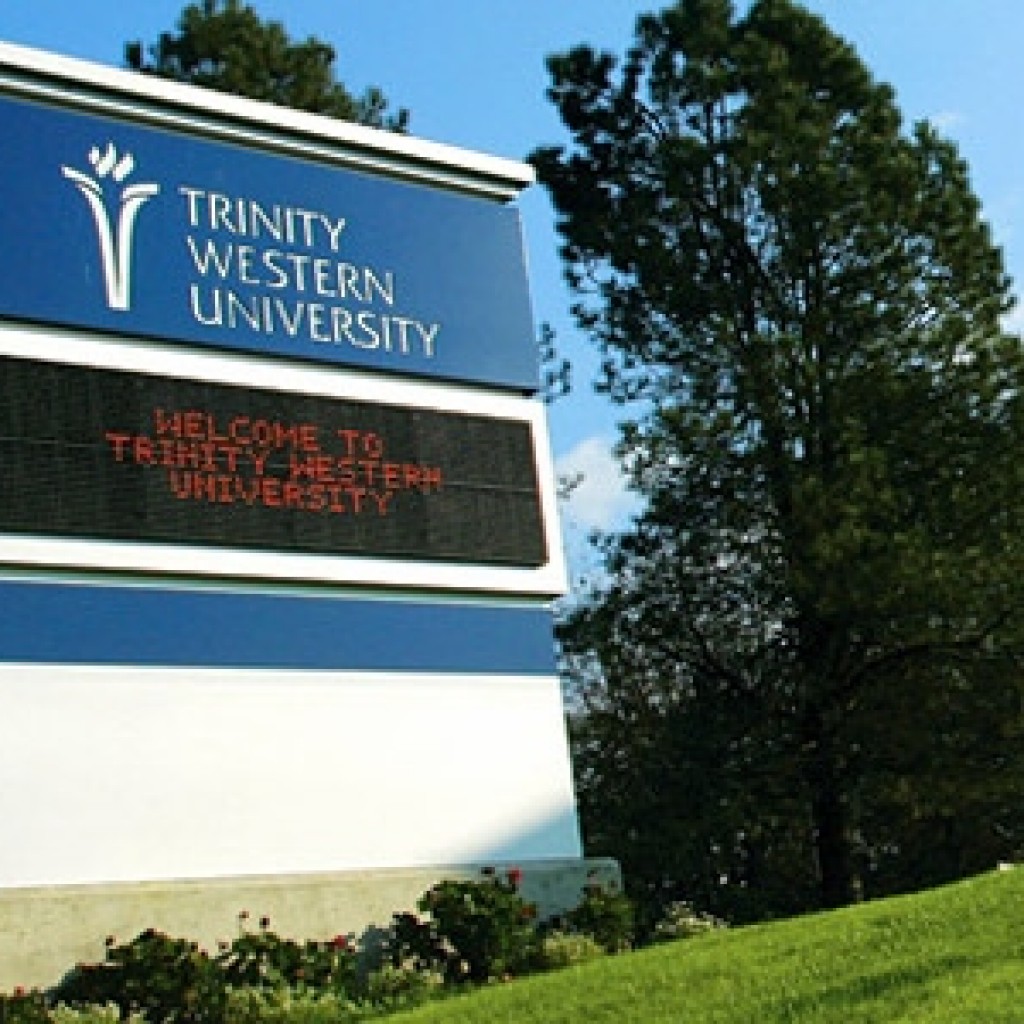
HALIFAX, Nova Scotia — A Canadian appeals court has ruled that a Christian law school can be denied accreditation due to its biblical beliefs about the institution of marriage.
As previously reported, Trinity Western University had filed suit in October 2014 after the Nova Scotia Barrister’s Society (NSBS) refused to recognize graduates as being attorneys until the Christian institution changed its policy on sexuality.
“According to the Bible, sexual intimacy is reserved for marriage between one man and one woman, and within that marriage bond it is God’s intention that it be enjoyed as a means for marital intimacy and procreation,” the university policy reads. “Honoring and upholding these principles, members of the TWU community strive for purity of thought and relationship, respectful modesty, personal responsibility for actions taken, and avoidance of contexts where temptation to compromise would be particularly strong.”
Students and staff must sign a covenant committing to personally uphold these lifestyle standards.
In January 2015, the Nova Scotia Supreme Court court found that the Society did not properly protect the religious freedom of the school as required by the Canadian Charter of Rights and Freedoms.
“I have concluded that the NSBS did not have the authority to do what it did,” Justice Jamie Campbell of the Nova Scotia Supreme Court wrote on Wednesday. “I have also concluded that even if it did have that authority it did not exercise it in a way that reasonably considered the concerns for religious freedom and liberty of conscience.”
But on Wednesday, the Ontario Court of Appeals ruled that Trinity Western University’s standards were discriminatory and compared the matter to the 1983 U.S. Supreme Court ruling over Bob Jones University’s opposition to interracial marriage.
“The Covenant is a document that discriminates against LGBTQ persons by forcing them to renounce their dignity and self-respect in order to obtain an education,” read the opinion written by Justice James MacPherson, and concurred by Justices Eleanore Cronk and Gladys Pardu. “The LSUC’s decision not to accredit TWU was indeed a reasonable conclusion.”
The judges stated that the law school may live out its Christian convictions—but without accreditation.
“The LSUC’s decision not to accredit TWU does not prevent the practice of a religious belief itself; rather it denies a public benefit because of the impact of that religious belief on others—members of the LGBTQ community,” MacPherson wrote.
But Trinity Western University expressed concern over the decision, finding it a government intrusion.
“It’s saying that a public organization like the law society has the freedom to say ‘this is what you may believe. Your freedom of religion is not that important,’” spokesperson Amy Robertson told reporters. “Freedom of conscience and religion is one of the most profound privileges of being a Canadian—it gives us the right to believe in God and express that and it gives us the right not to believe in God and express that.”
“Freedom of conscience and religion is the first of the fundamental freedoms mentioned in the charter,” she stated. “It is deeply compromised by this decision, and everyone in Canada, religious or not, should be concerned.”
The university plans to appeal to the Canadian Supreme Court.
A special message from the publisher…
 Dear Reader, our hearts are deeply grieved by the ongoing devastation in Iraq, and through this we have been compelled to take a stand at the gates of hell against the enemy who came to kill and destroy. Bibles for Iraq is a project to put Arabic and Kurdish audio Bibles into the hands of Iraqi and Syrian refugees—many of whom are illiterate and who have never heard the gospel.Will you stand with us and make a donation today to this important effort? Please click here to send a Bible to a refugee >>
Dear Reader, our hearts are deeply grieved by the ongoing devastation in Iraq, and through this we have been compelled to take a stand at the gates of hell against the enemy who came to kill and destroy. Bibles for Iraq is a project to put Arabic and Kurdish audio Bibles into the hands of Iraqi and Syrian refugees—many of whom are illiterate and who have never heard the gospel.Will you stand with us and make a donation today to this important effort? Please click here to send a Bible to a refugee >>



